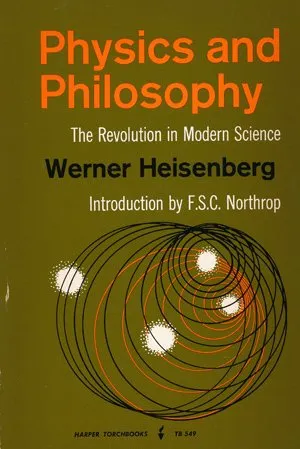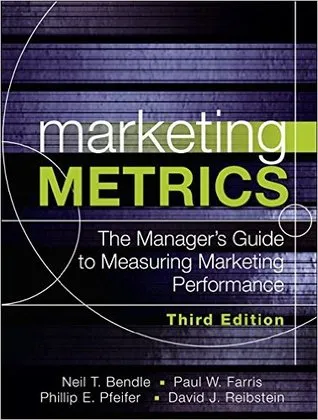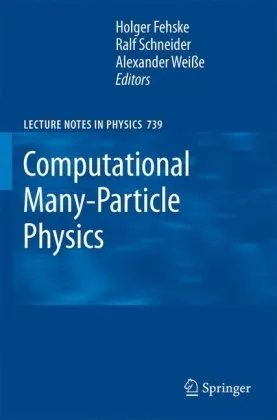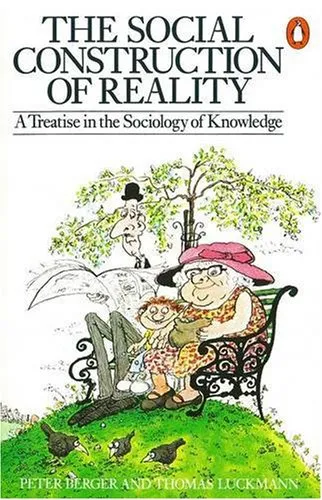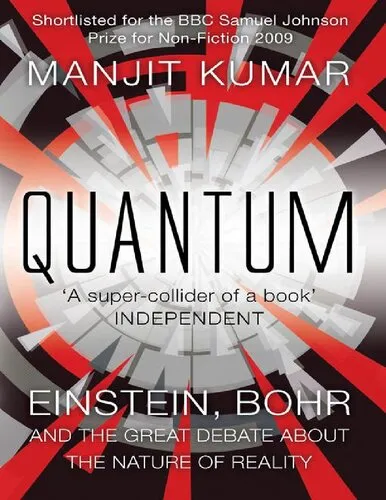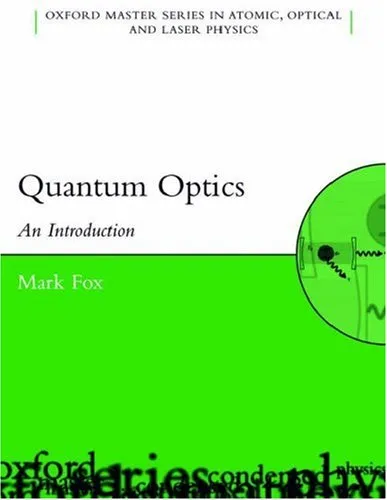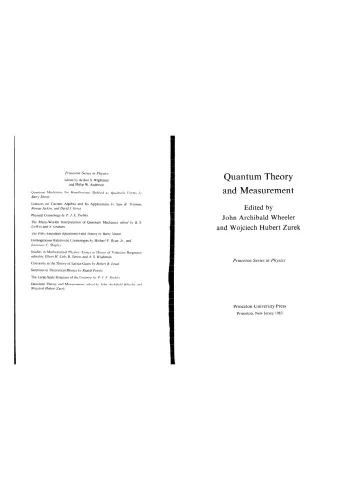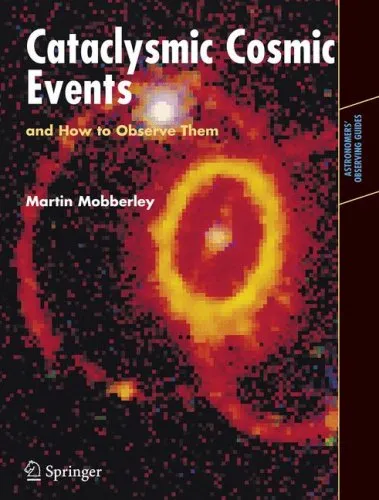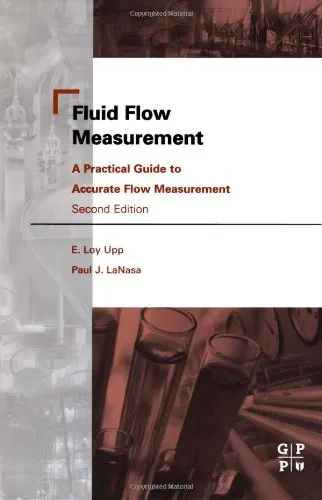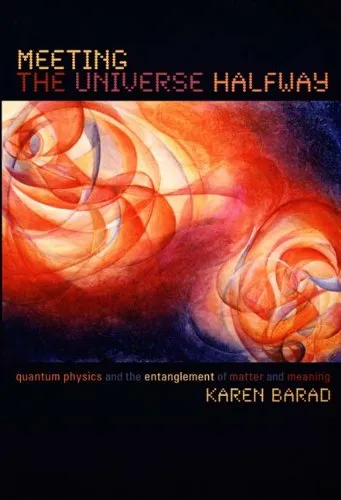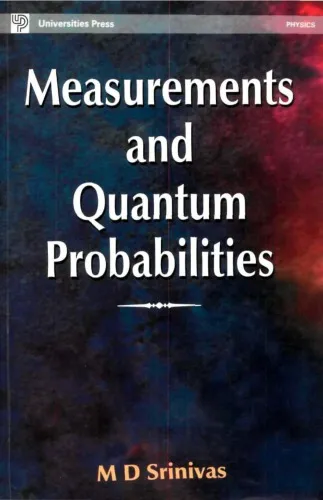Physics and Philosophy: The Revolution in Modern Science.
4.5
بر اساس نظر کاربران

شما میتونید سوالاتتون در باره کتاب رو از هوش مصنوعیش بعد از ورود بپرسید
هر دانلود یا پرسش از هوش مصنوعی 2 امتیاز لازم دارد، برای بدست آوردن امتیاز رایگان، به صفحه ی راهنمای امتیازات سر بزنید و یک سری کار ارزشمند انجام بدینکتاب های مرتبط:
معرفی کتاب "فیزیک و فلسفه: انقلاب در علم مدرن"
کتاب "Physics and Philosophy: The Revolution in Modern Science" به عنوان یکی از نوشتههای بنیادین ورنر هایزنبرگ، به بررسی پیوندها و تفاوتهای عمیق میان دو حوزه مهم و پیچیده، یعنی فیزیک جدید و فلسفه میپردازد. این کتاب، تأثیرات عمیق نظریات علمی بر نگرشهای فلسفی را بررسی کرده و به ما نشان میدهد که چگونه مفاهیم علمی میتوانند تفکر فلسفی را شکل دهند و بالعکس.
خلاصهای از کتاب
این کتاب به دهههای اخیر علم فیزیک میپردازد که شاهد انقلابهای گستردهای از جمله نظریه نسبیت و مکانیک کوانتوم بودهاند. در اینجا، هایزنبرگ به بررسی تأثیرات فلسفی این نظریات جدید میپردازد و پرسشهای بنیادینی را درباره ماهیت واقعیت، علیت و مفاهیم زمان و فضا مطرح میکند. او نشان میدهد که چگونه اصول Physics مانند اصل عدم قطعیت، مرزهای جدیدی برای درک ما از دنیای پیرامون ترسیم میکنند. کتاب همچنین به بررسی این موضوع میپردازد که چگونه این تغییرات در فیزیک، موجب تحول در فلسفه میشود و گستره جدیدی از مباحث و چالشها را پدید میآورد.
نکات کلیدی
- ترکیب دیدگاههای علمی و فلسفی برای رسیدن به درک عمیقتری از واقعیت.
- نقش حیاتی مکانیک کوانتوم در تغییر نگرشهای سنتی علمی و فلسفی.
- تحلیل دقیق اصل عدم قطعیت و تأثیر آن بر مفهوم تعیینپذیری در فیزیک.
- تأثیر انقلابهای علمی بر فلسفه معاصر و دیدگاههای وجودی.
جملات معروف از کتاب
"فیزیک کوانتوم نه تنها به ما میآموزد که به شیوهای تازه درباره طبیعت فکر کنیم، بلکه ما را وادار میکند تا بهطور کلی درباره خود فلسفه نیز بیاندیشیم."
"در نهایت، چیزی که در تلاش علمی و فلسفی ارزشمند است، همان جستجوی حقیقت است که هرگز به پایان نمیرسد."
چرا این کتاب اهمیت دارد
"فیزیک و فلسفه: انقلاب در علم مدرن" به ما کمک میکند تا فهمی بهتر و عمیقتر از جهان معاصر داشته باشیم. این کتاب با برداشتن پردههایی از پیچیدگیهای علمی و فلسفی، مخاطب را وارد دنیای جدیدی از تفکر میکند که در آن مفاهیم عجیب و شگفتآور فیزیک کوانتوم نه تنها موضوعی برای فیزیکدانان بلکه موضوعی برای فیلسوفان نیز محسوب میشود. اهمیت این کتاب در این است که به خواننده کمک میکند تا پلی بین دو دنیای گاه متضاد علم و فلسفه برقرار کند.
Introduction
Welcome to the world of 'Physics and Philosophy: The Revolution in Modern Science.' This seminal book by Werner Heisenberg, a pivotal figure in theoretical physics, provides an enthralling exploration of the profound changes in the way we understand nature and reality, brought about by the developments in modern physics. With the advent of quantum mechanics, traditional concepts of reality, causality, and determinism were challenged and transformed. Heisenberg, a key exponent of these revolutionary ideas, invites readers on a reflective journey through the philosophical implications of modern scientific discoveries.
Detailed Summary of the Book
The book delves into the intersection between the abstract world of quantum physics and the philosophical questions that these scientific developments raise. Throughout its chapters, Heisenberg explains the fundamental principles of quantum mechanics and reflects on how these principles fundamentally alter the traditional scientific view of nature. By contemplating the nature of reality, Heisenberg extends beyond the technicalities of physics to question how science shapes human understanding. He addresses topics such as the uncertainty principle, quantum theory, and the limits of human knowledge.
His exploration goes beyond mere scientific narrative to reveal a philosophical dialogue where scientific truths meet their philosophical interpretations. Through rigorous analysis, Heisenberg showcases how quantum mechanics redefined concepts like reality, determinism, and causality while introducing indeterminacy as a central theme. This book serves not only as a scientific exposition but as a profound philosophical inquiry into the nature of truth and the role of science in understanding the universe.
Key Takeaways
- Quantum mechanics challenges classical views of determinism.
- Heisenberg’s Uncertainty Principle alters the fundamental understanding of measurement and reality.
- The interplay between physics and philosophy is critical to grasping modern scientific developments.
- Scientific revolutions influence not only our technological world but also our philosophical outlook.
Famous Quotes from the Book
'The concepts of physics are free creations of the human mind, and are not, however it may seem, uniquely determined by the external world.'
'What we observe is not nature itself, but nature exposed to our method of questioning.'
'Natural science does not simply describe and explain nature; it is part of the interplay between nature and ourselves.'
Why This Book Matters
'Physics and Philosophy' is more than a scientific text; it is a treasure trove of philosophical insight. Its importance lies in its ability to bridge the gap between abstract scientific theories and the deep, philosophical questions about human existence, knowledge, and reality. Heisenberg’s work offers critical reflections that shed light on the philosophical ramifications of science, influencing philosophers, scientists, and scholars across disciplines.
This book is essential for anyone looking to understand how pivotal scientific advancements have altered the course of human thought. It’s a work that challenges readers to rethink the boundaries of science and its implications on the larger questions concerning existence and perception. As universities and scientific discourse increasingly recognize the interdependence between science and humanities, this book stands as a cornerstone of contemporary intellectual thought.
دانلود رایگان مستقیم
شما میتونید سوالاتتون در باره کتاب رو از هوش مصنوعیش بعد از ورود بپرسید
دسترسی به کتابها از طریق پلتفرمهای قانونی و کتابخانههای عمومی نه تنها از حقوق نویسندگان و ناشران حمایت میکند، بلکه به پایداری فرهنگ کتابخوانی نیز کمک میرساند. پیش از دانلود، لحظهای به بررسی این گزینهها فکر کنید.
این کتاب رو در پلتفرم های دیگه ببینید
WorldCat به شما کمک میکنه تا کتاب ها رو در کتابخانه های سراسر دنیا پیدا کنید
امتیازها، نظرات تخصصی و صحبت ها درباره کتاب را در Goodreads ببینید
کتابهای کمیاب یا دست دوم را در AbeBooks پیدا کنید و بخرید
1541
بازدید4.5
امتیاز0
نظر98%
رضایتنظرات:
4.5
بر اساس 0 نظر کاربران
Questions & Answers
Ask questions about this book or help others by answering
No questions yet. Be the first to ask!
